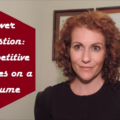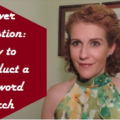More and more interviewers realize that by meeting candidates in an informal setting, such as over lunch, they can create a closer, personal connection with the prospective hire. As an interviewee, the lunch interview is a great opportunity to showcase both your skills and your cultural fit. That said, it is still considered an unconventional setting for a job interview. Here are my top tips for acing the unconventional lunch interview.
Lunch Interview Tips
- Prepare – preparation is critical for any interview, but there are unique considerations when attending the lunch interview:
- Dress as you would for a more formal interview. Remember, a lunch interview is still a job interview.
- Do your research. Researching the organization is critical, but be sure to also research the restaurant. Familiarize yourself with the menu. After all, you don’t want to waste valuable interview time pouring over the menu.
- Conduct a Google image search on the interviewer. In doing so, you will have an idea of who to look for when you arrive (15 minutes early).
- Table Manners – be sure to be polite to the wait staff and practice those childhood lessons like no elbows on the table, and no speaking with your mouth full.
- Follow the Interviewer’s Lead – order something at a similar price point to what the interviewer orders. Ordering the most expensive item on the menu could send a negative signal.
- Easy to Eat –avoid ordering food that is cumbersome to handle such as ribs or chicken wings.
- Avoid Alcohol – even if the interviewer orders an alcoholic beverage, I recommend refraining. Consuming alcohol during an interview may inhibit you from presenting the best version of yourself.
- Informal, Not too Informal – it is perfectly acceptable to have casual conversation. That said, this is still an interview, so be sure to stick to professional conversation topics.
- Interviewer Pays – when an organization invites you for lunch, the expectation is that they will pay for the meal.
- Thank You Letter – it is a best practice to send a thank you letter after your interview. After a lunch interview, you have the opportunity to make the letter more personal by making mention of the restaurant or meal.
Final Thoughts
As with any other job interview, it is important to remember that you are interviewing the organization as well. Take note of how the interviewer treats the wait staff as an indication of their potential treatment of employees.
I hope you found this post helpful. If you have any additional insights, or would like to share your experience, I’d love to hear from you.
Until next time, happy hunting!
For personalized advice, click here.













